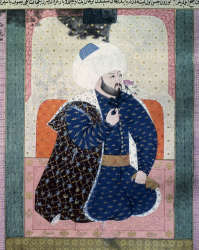

| Visitors Now: | |
| Total Visits: | |
| Total Stories: |

| Story Views | |
| Now: | |
| Last Hour: | |
| Last 24 Hours: | |
| Total: | |
A Re-do almost a century later
The possible Balkanization of Syria is an increasingly likely prospect – at least for the short-term – and could provide a historic counterpoint in the Middle East to what the West did to carve up the region almost a century ago.
With the Ottoman Empire defeated after World War One, the trimuphent Allies sought to ensure their version of stability in the Middle East by eviserating the Ottoman Empire, creating Iraq, Syria and Jordan and renaming Persia. They promised the Kurds a homeland, then broke their promise. In were the British, French and Arabs – out were the Turks and Kurds.
Now, with Syria in freefall and Iraq festering with its own internal battles, those two groups that were out a century ago could—if crafty and prgamatic – drive a new map of the region.
Turkey is best positioned to take pro-active steps. It has the economc stability and often the political independence to set its own agenda. Plus it has a real need for economic and political allies in the region and geographic buffer zones against extremists.
Turkey has already taken a tough stand against Syrain, It has requested – and received – intelligence sharing with the United States (much like it received earlier in its efforts against the PKK rebels). Its demand for no-fly zones is being taken seriously and contingency plans are being developed to secure Syria’s stockpiles of chemical and biologial weapons, at Turkey’s urging.
Their long time enemeis, the Kurds, may become a partner – either in a pragmatic marriage or as collaborative, cautious cohabitants. In one of the most crazy possibilities, the Iraqi Kurds may find they need Turkish military protection if the now deadly divisions in Iraq become even worse. Those divisions are already spilling over into Syria.
Some Iraqis are now supporting their Sunni tribal kin in Syria. Others openly support Free Syrian Army rebels with arms when border controls allowed. Iraqi officials and arms dealers acknowledge the intensifying conflict has already spurred demand in weapons markets in Iraq.
http://www.reuters.com/article/2012/10/31/syria-crisis-iraq-idUSL5E8LOEM320121031
Adding to the confusion, an intelligence report cited by Reuters last month said that Iraq has been allowing Iran to funnel “personnel and tens of tons of weapons” through Iraqi airspace and into Syria “on almost a daily basis.” And according to The New York Times, buses carrying pilgrims to a Shiite shrine in Syria are reported to have also carried weapons, supplies and fighters to aid the Assad regime.
And of course, the Iraqi Kurds continue to support their Kurdish cousin in Syria. Kurdish self-defense forces from Syria are now receiving training from Peshmerga forces in Iraqi Kurdistan. The borders of the two Kurdish regions align (as does the one with Turkish Kurds). The dream of an independent Kurdish state seems to be more realistic than ever. And that may include the very unspoken words of a Greater Kurdistan.
Ironically Turkey – who has gone to war with Iraqi Kurds and has cracked down on its own Turkish Kurds – may be the one that provides birth to such a confederation.
Syria’s Kurds have already turned to Turkey for support as a balancing force against Arab nationalism, a lesson they would fast learn from the Iraqi Kurds, who have made Turkey their protector against Baghdad since 2010.
This presents Turkey with a crucial choice. It has traditionally been hostile to an independent Kurdish state or entity anywhere in the region, lest its own Kurdish population make similar demands. But its calculus could be changed by the prospect of chronically unstable Sunni Arab neighbors, and the need to counter Iran’s Shiite axis — currently stretching from Baghdad to the Assad regime to Hezbollah in Lebanon
Furthermore, as in Iraqi Kurdistan, Turkish infrastructure companies would be among the prime beneficiaries of investment in Syria’s Kurdish region post-Assad, winning major contracts, as they did in Iraqi Kurdistan after Saddam. Turkish companies have practically built Iraqi Kurdistan, paving its roads, designing its airports, drilling for its oil, and constructing its urban communities — not to mention being the necessary outlet for Iraqi Kurdistan’s energy resources. Similarly, it is a necessary trade partner for any landlocked entity emerging in the post-Assad aftermath. Turkey’s competitive advantage in Iraq, as an advanced economy that lies next door, will be its advantage also in post-Assad Syria.
It will be hard for Turkey to build a strong relationship with the Syrian and Iraqi Kurds when Turkish Kurds loathe their central government. As it aims for influence in Syria and Iraq, Ankara has to make peace with its Kurdish community. There will not be autonomy, but more democracy may be the path. Turkey is debating whether to write its first civilian constitution; that is the roadmap.
Today the lavish, feel-good Turkish epic “Conquest 1453” — the tale of the taking of Constantinople by the 21-year-old Sultan Mehmet II — has become the highest-grossing film in Turkey’s history, Its cultural triumphalism has been magnified at home and primed Turks to restore their past glory.
That moment truly may have arrived.
(Photo: Getty Images)
2012-11-03 17:06:24
Source:



